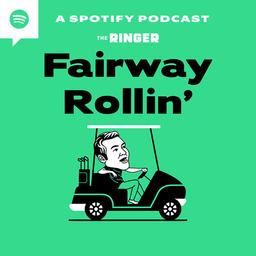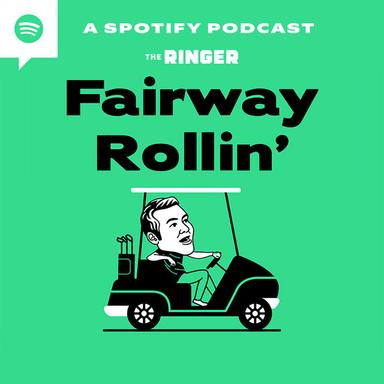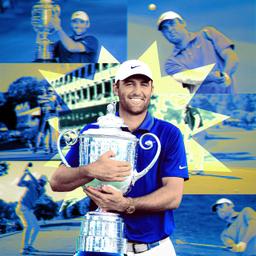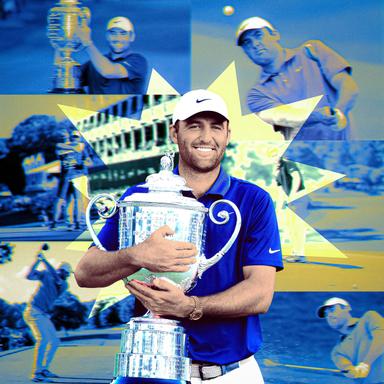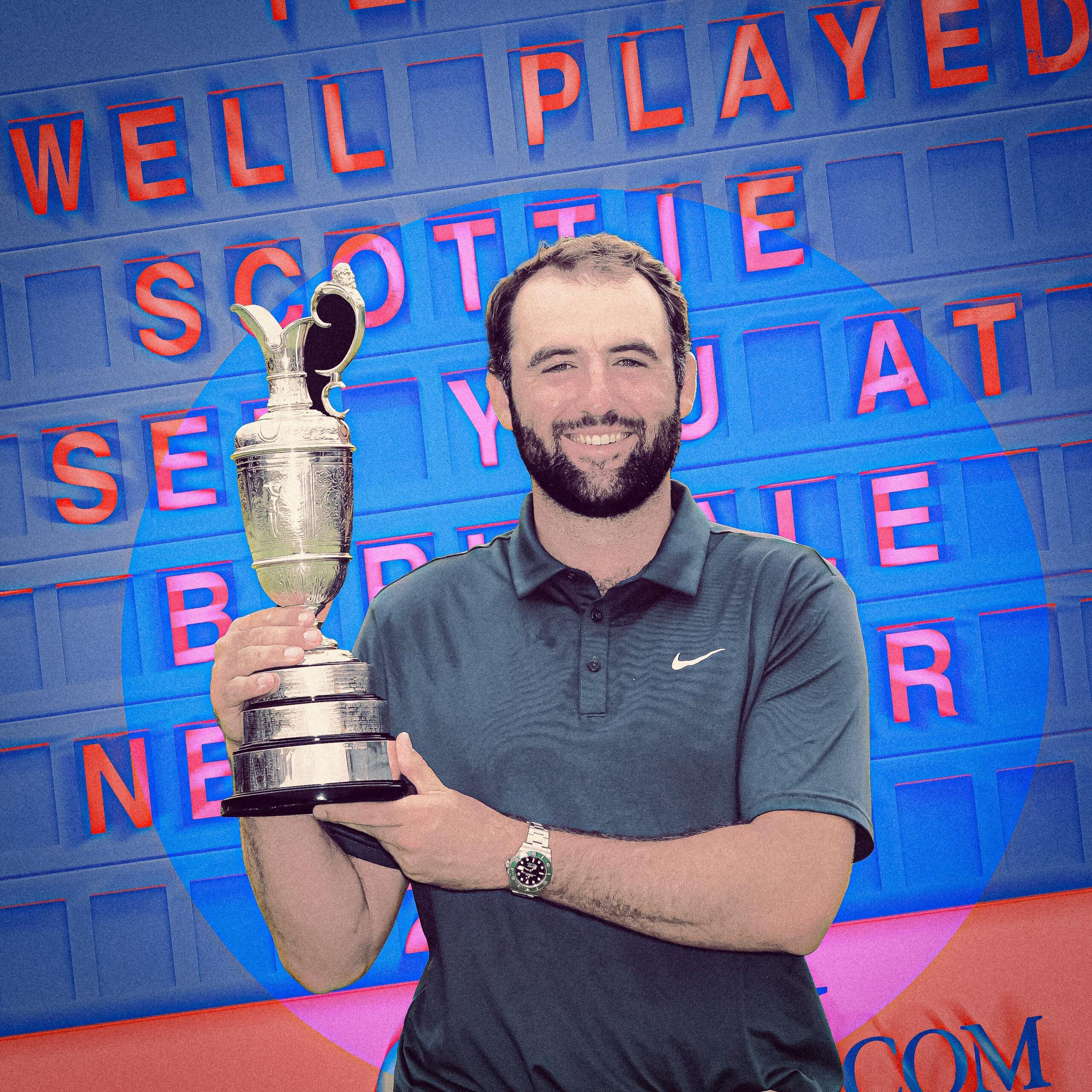
Watch enough golf, and you’ll start to feel like you’ve seen everything. Say, a man wading knee-deep into a water hazard with his pants rolled up, or another man chasing after a missed putt and then whacking it again while the ball is still moving, or John Daly doing anything. But I’m not sure there’s ever been a golf week like this. Lord knows, at this point, we’ve experienced plenty of Scottie Scheffler in the winner’s circle. Coming into the Open Championship at Royal Portrush in Northern Ireland, the 29-year-old Texan and world no. 1 had won three times this season, including the PGA Championship in May. He hadn’t finished outside of the top 10 in a tournament since March. And this came after a monstrous nine-win season in 2024, which included his second Masters victory and an Olympic gold medal.
Since emerging as a generational talent in 2022, Scheffler has been both spectacular and spectacularly consistent. On the course, he projects a placid, even slightly hangdog demeanor, loping along while offhandedly executing one brilliant shot after the next. Off the course, he has tended to come across as soft-spoken and affable, God-fearing and family-oriented, likable but not exactly knowable. Those of us who cover pro golf acknowledge a dichotomy: With some players, it feels like they are truly dimensional—with interests and pursuits and opinions and emotions that supersede their performances between the ropes—while with others, it can feel like their public personalities revolve almost entirely around launch angles and swing speed metrics. Until this week, it wasn’t entirely clear which side of that divide Scheffler fell on.
That changed, and then some, on Tuesday when Scheffler took the occasion of a routine pretournament press conference to go into a startlingly and even uncomfortably honest monologue about … the meaning of life? Or at least the meaning of golf, which is a somewhat interchangeable concept for a shoo-in future Hall of Famer who’s in the early bloom of a seemingly limitless athletic prime. Here’s a sample of his sentiments from that day:
“I’m not out here to inspire someone to be the best player in the world because what’s the point? This is not a fulfilling life. It’s fulfilling from the sense of accomplishment, but it’s not fulfilling from a sense of the deepest places of your heart.”
Also:
“There’s a lot of people that make it to what they thought was going to fulfill them in life, and you get there, you get to no. 1 in the world, and they’re like, What’s the point? I really do believe that because—what is the point? Why do I want to win this tournament so bad?”
Also:
“It’s like showing up at the Masters every year; it’s like, why do I want to win this golf tournament so badly? Why do I want to win the Open Championship so badly? I don’t know, because if I win, it’s going to be awesome for two minutes.”
Also:
“Playing professional sports is a really weird thing to do. It really is. Just because we put in so much effort, we work so hard for something that’s so fleeting. It really is. The feeling of winning just doesn’t last that long. When I sit back at the end of the year and try to reflect on things, like having that sense of accomplishment from winning the Masters Tournament, from winning the PGA Championship, I have a deep sense of gratitude and appreciation for it, but it’s just hard to explain how it doesn’t—it just doesn’t satisfy, is how I would describe it. It’s an unsatisfying venture.”
Whoa! What was happening here? This was heady stuff, reminiscent of Bill Parcells’s troubled maxim: “There is winning, and there is misery.” Was Scheffler burned out? Had he tired of his own dominance? Had he been brushing up on his Samuel Beckett? Public intrigue around those comments quickly built to a fever pitch in the days leading up to Thursday’s opening round. What happens when the heavy favorite to win the year’s final major says, essentially, that it won’t be all that fulfilling if he does?
Well, we have our answer. Scheffler positively bulldozed a stacked field this week, carding an opening-round 68, seizing control of the tournament with a brilliant 64 on Friday, building his lead to four through a bogey-free Saturday, and coasting home with a drama-light 68 on a Sunday in which he never seemed to be in jeopardy—even as he was being chased by multiple-major winners Xander Schauffele and Bryson DeChambeau and returning national hero Rory McIlroy. Each of those guys played well, and even brilliantly at times, over the course of the Open—including DeChambeau’s sparkling Sunday 64 and Rory’s electric 66 on moving day. It didn’t matter.
Scheffler seemed to be playing the last several holes on autopilot on Sunday, and that gear was still better than his opponents’ grinding. Not since the heyday of Tiger Woods did an ending to a major seem so thoroughly predetermined. “None of us could hang with Scottie this week,” a resigned McIlroy said after the tournament. “He is the bar we are all trying to get to. In a historical context, you could argue there are maybe two or three players in the history of the game that have been on a run like the one Scottie’s been on here for the last 24 to 36 months.”
This win marked Scheffler’s fourth triumph in a major, but it’s his first not to come at either Augusta National or its down-market knockoff, Quail Hollow. We suspected he could dominate on a links course at the Open Championship; now we know he can. Earlier this year, McIlroy became the sixth man to complete the career Grand Slam, and Scheffler now owns three legs of that table. At this point, the bigger surprise would be if he didn’t eventually bag a U.S. Open or two to complete the job.
And yet, for all of the awesome prowess he displayed this week, I think my principal takeaway will remain Scheffler’s ambivalence. After he holed his final putt on the 18th on Sunday, Scheffler ginned up some celebratory gestures. He raised his arms in the air. He threw his hat on the ground. He hugged his family and his caddie. He held and kissed his wife. These were, presumably, the two minutes of exhilaration he described earlier in the week. At the trophy presentation, he was unfailingly gracious toward a collected gallery that was obviously disappointed to have seen him best their countryman, McIlroy.
“I don’t know what to say,” Scheffler began, though of course he did. He fulsomely thanked the staff and crew at Royal Portrush, his parents, and his team. He said a couple of times that it had been “a fun week,” sounding not particularly persuasive. He apologized for not seeing more of the town. He was asked if he would remedy that on Sunday night à la Shane Lowry in 2019, and he said he’d be heading home. The vibe could scarcely be more different from McIlroy’s cathartic celebration at the Masters in April. It’s almost hard to believe it was the same sport.
NBC’s Mike Tirico attempted to orient Scheffler to the magnitude of his achievement in a post-round interview, citing a few of the famous names engraved on the Claret Jug and emphasizing the long and storied history of which Scheffler was now a part. Scheffler said, of the Jug, something like: Yeah. I’ll take it home with me. It was all very nice, though in my mind, the exchange was soundtracked by Peggy Lee’s “Is That All There Is?”
Is this mentality Scheffler’s Achilles’ heel or his superpower? He has clearly established himself as the greatest American golfer since Woods but is also something like his dispositional inverse. If you asked Woods what “the meaning” was of his eight wins at Bay Hill, for example, I don’t think he’d even understand the question. He’d probably say something to the effect of, “The goal is to win every week,” like Nigel Tufnel repeatedly explaining that his amp goes to 11. It’s unlikely that anyone will ever match what Woods accomplished on the golf course, but the very nature of his all-gas, no-brakes approach to winning at least resembled the template set by previous pathological overachievers like Michael Jordan and Jack Nicklaus. Scheffler resembles something else. What that is is only slowly coming into view.
Perhaps the one moment of unmitigated joy in the aftermath of Scheffler’s triumph Sunday was the truly adorable image of him standing next to his 1-year-old son, Bennett, watching the toddler grasp at the Claret Jug on the 18th green, the trophy and child standing at roughly the same height. One other sentiment from Scheffler’s deeply revealing Tuesday press conference was this: “If my golf ever started affecting my home life or it ever affected the relationship I have with my wife or my son, that’s going to be the last day that I play out here for a living.” I suspect that was truly the point.
